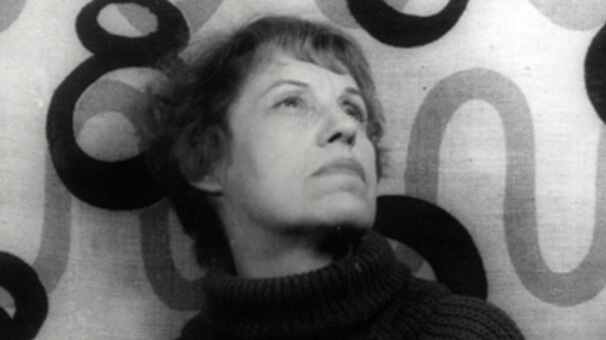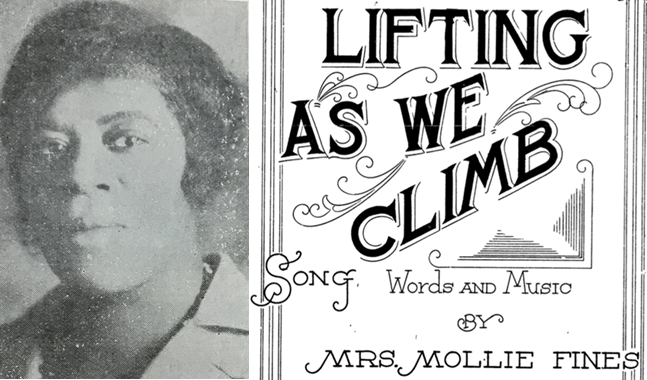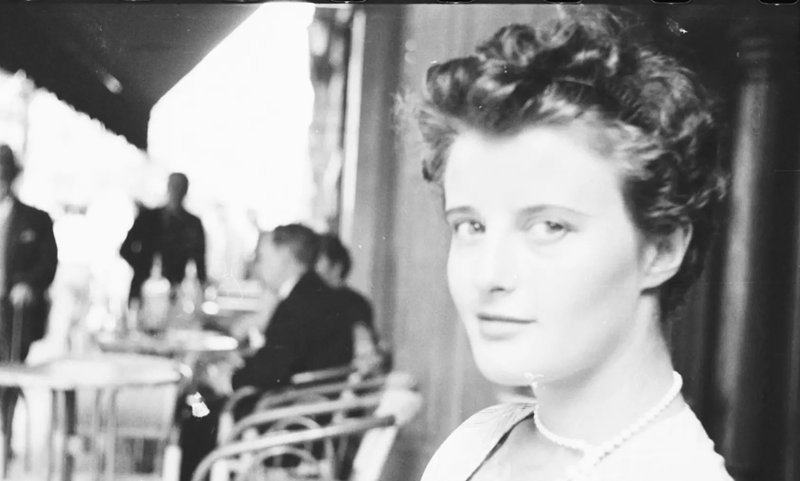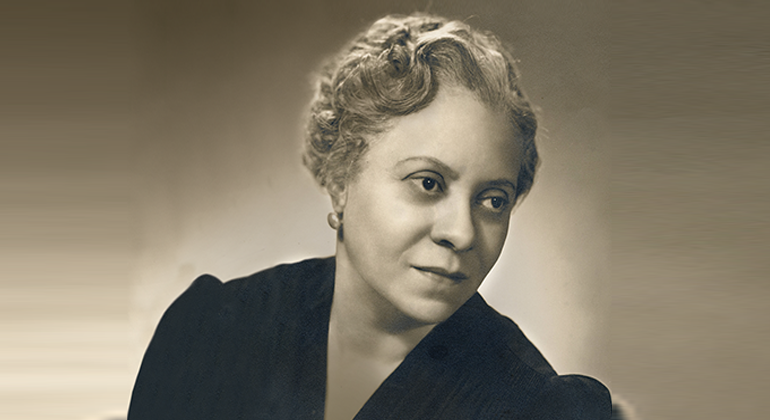The distance travelled from early to late Lenya is perhaps best exemplified by different renditions of the same song made during the course of her career – “Surabaya-Johnny,” for example, the ballad of an embittered, long-suffering love that Brecht based on a poem by Rudyard Kipling. Although she did not appear in the show for which Weill composed the number – the play with music Happy End – she performed it quite frequently and recorded it several times. Here is the version from the year of Happy End’s premiere, 1929:
We know from Theodor W. Adorno’s insightful and appreciative review that she included “Surabaya-Johnny” in her live recital on Frankfurt radio a few months later. “It is a feature of the Weillian song style,” Adorno observed, “that it is not bound by the single work; it is as though the works, insurgent improvisations[,] … maintained the nimbleness of social engagement.” Lenya, he continued, sang “with a combination of delicate sweetness and disdainful impassiveness.” Decades later he would return to this double-edged quality, writing that “the voice is not husky like that of [Marlene] Dietrich; it has rather a desolately quivering sweetness emanating from that undomesticated quality that unconditionally eschews the competence of the American musical.”
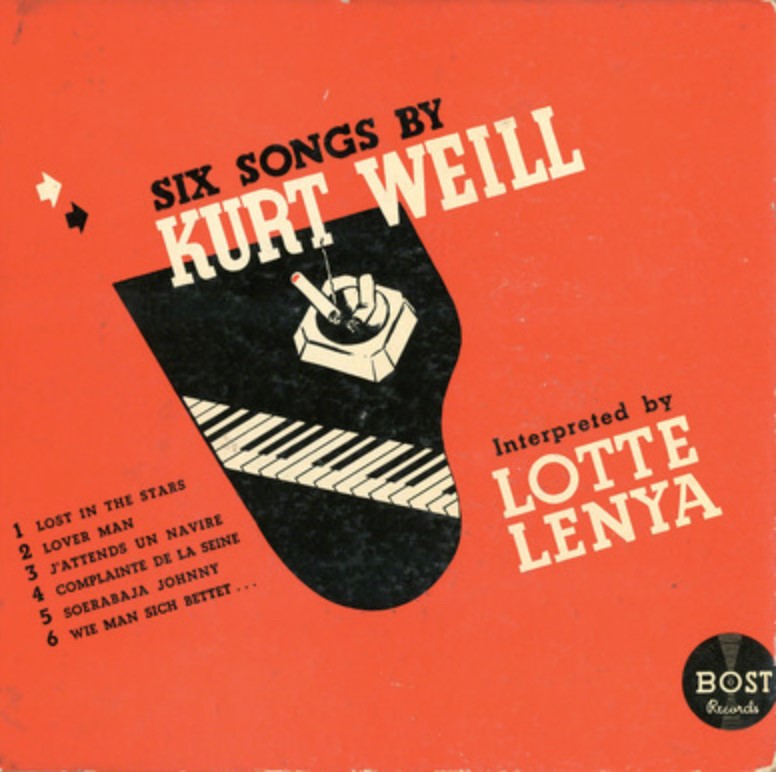
In 1943, following Weill’s success on Broadway with his musical play Lady in the Dark, Lenya recorded for Bost Records in New York six songs representing three phases of Weill’s career – two in German, two in French, and two in English. At this point, her tessitura had still shifted little. She is described in the liner notes as “an ideal interpreter for these compositions,” the range of her style as “changing from child-like wistfulness to dramatic, from naive to cynical – yet always passionate and exciting.” Vocally, this version covers a particularly wide expressive range, creating an altogether more tender and, to borrow a word from the liner notes, “wistful” impression, thanks in part to the piano accompaniment in Weill’s new arrangement (possibly played by the composer himself), which tones down the stridency of German cabaret in favor of the gentler inflections of the cocktail lounge.
With the various recordings of the 1950s, including the entire score of Happy End from 1960, one can follow the evolution of Lenya’s voice into its deeper and more familiar regions. All traces of the world of the 1920s ingénue soubrette have gone, now replaced by the autumnal tones of worldly experience. Lenya recorded the last version included here for the 12-part television series “Music in the 20’s” broadcast by WGBH in 1965. The series host, the composer Aaron Copland, introduced two of Weill’s German-language songs, reminiscing about the time he spent in Berlin as a young man and adding that “We have the signal advantage of hearing them presented by the original and inimitable protagonist of Weill’s most typical roles, Miss Lotte Lenya.”
Weill’s notion of “a force of nature” and Adorno’s “undomesticated quality” both allude to the fact that Lenya’s singing voice was not classically trained. What she lacked in conventional technical skill only enhances her capacity to convey human frailty and emotional vulnerability. W. H. Auden once observed that bel canto operatic singing at its finest “demolishes the theory that we are the irresponsible puppets of fate or chance,” even in the face of overwhelming tragedy. Opera singers willfully transcend their fate through virtuosic vocal “competence,” to turn Adorno’s negatively critical term into a positive. When Lenya sings of desolation she offers no such escape. This is how the legendary opera singer Teresa Stratas, in an essay called “The Colors of Lenya,” understood what her friend and mentor had been trying to tell her toward the end of her life about interpreting Weill’s music:
Real life bursts through the thin skin of music, when music tries to prettify the tragedies and ugly dimensions of life. An artist should project all the possibilities of life and the human spirit and not just be linked to one color.
Much of the distinctive richness of Lenya’s voice, those myriad nuances and colors – in short, her “style” – derives from the seamless and supple transitions from speaking to singing and back again, a mode of performance familiar from German and French cabaret of the 1920s and 30s. (In 1966 she was cast as Fräulein Schneider in the premiere production of Kander and Ebb’s Cabaret.)
Returning to the lunar theme, Lenya’s mellifluous speaking voice should have the last word – or rather, words, delivered in her characteristic Viennese lilt for the two-disc anthology Invitation to German Poetry, which she recorded in the late 1950s. She is reciting Eichendorff’s Mondnacht (Moonlit Night), the poem that Robert Schumann set as part of his Liederkreis, op. 39. (The poem and its English translation follow below.)
Es war, als hätt’ der Himmel,
Die Erde still geküßt,
Daß sie im Blütenschimmer
Von ihm nur träumen müßt’.
Die Luft ging durch die Felder,
Die Ähren wogten sacht,
Es rauschten leis die Wälder,
So sternklar war die Nacht.
Und meine Seele spannte
Weit ihre Flügel aus,
Flog durch die stillen Lande,
Als flöge sie nach Haus.
_________
It was as though Heaven
Had softly kissed the Earth,
So that she in a gleam of blossom
Had only to dream of him.
The breeze passed through the fields,
The corn swayed gently to and fro,
The forests murmured softly,
The night was so clear with stars.
And my soul spread
Her wings out wide,
Flew across the silent land,
As though flying home.
Notes
The banner photo is taken from Carl Van Vechten’s photo of Lotte Lenya in New York in 1962.
Theodor W. Adorno, “Vortrupp und Avantgarde: Replik an Horst Koegler,” Der Monat 8 (March 1956): 76–78; reprinted in Adorno, Gesammelte Schriften 18:800–04
Kurt Weill and Lotte Lenya, Speak Low (When You Speak Love): The Letters of Kurt Weill and Lotte Lenya, trans. and ed. Lys Symonette and Kim H. Kowalke (Berkeley: UC Press, 1996)
Happy End: Ein Stück
Teresa Stratas, “The Colors of Lenya,” in Lenya

Guest Blogger: Stephen Hinton
Stephen Hinton is the Avalon Foundation Professor in the Humanities at Stanford University. He has published widely on many aspects of modern German music history. His book Weill’s Musical Theater: Stages of Reform (2012), the first musicological study of Weill’s complete stage works, received the 2013 Kurt Weill Book Prize for outstanding scholarship in music theater since 1900. Together with the St. Lawrence String Quartet, he created Defining the String Quartet, the series of edX online courses on the music of Haydn and Beethoven.


